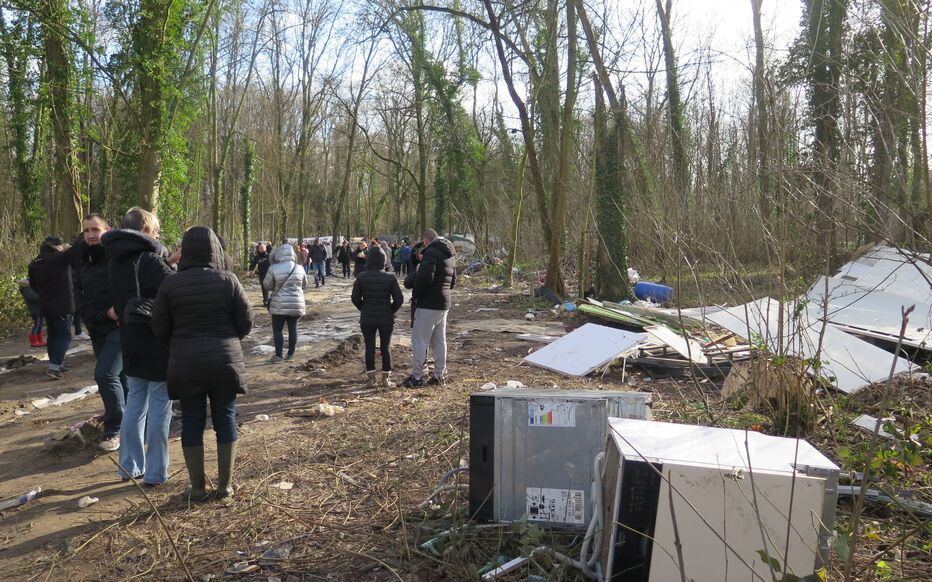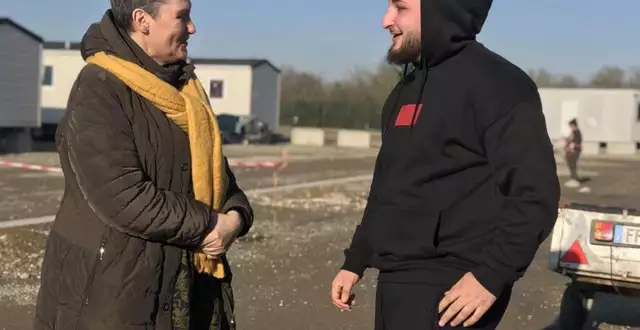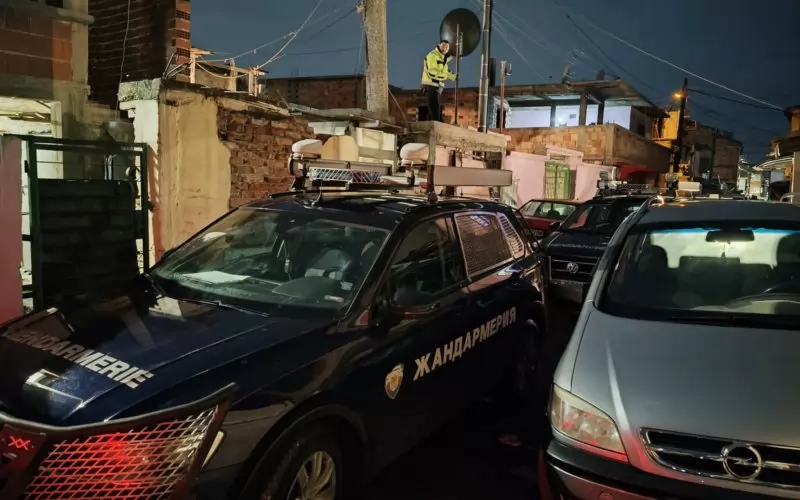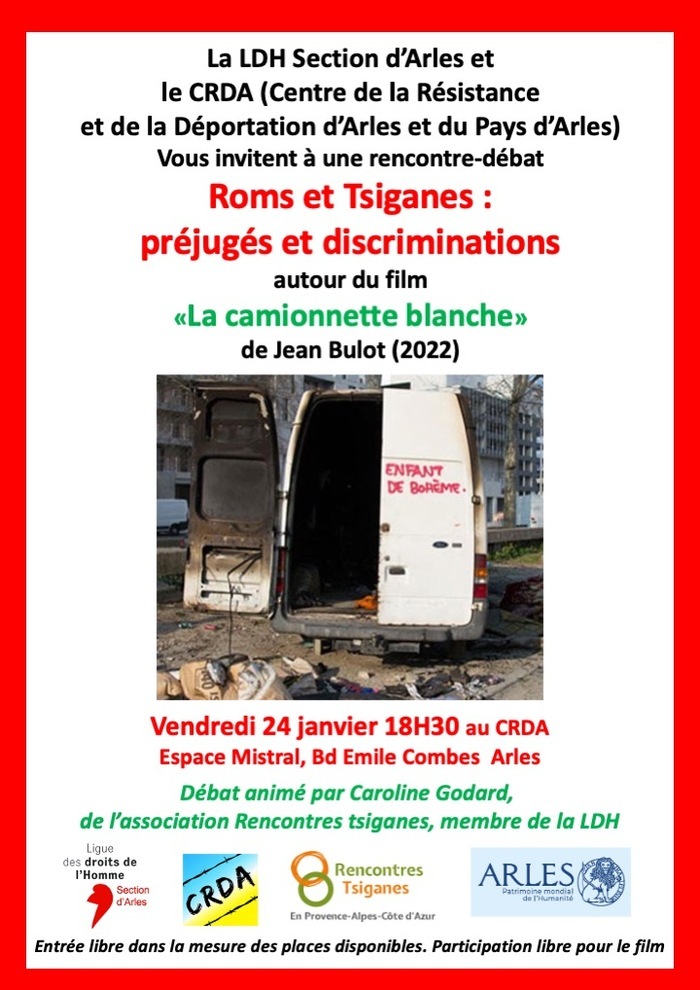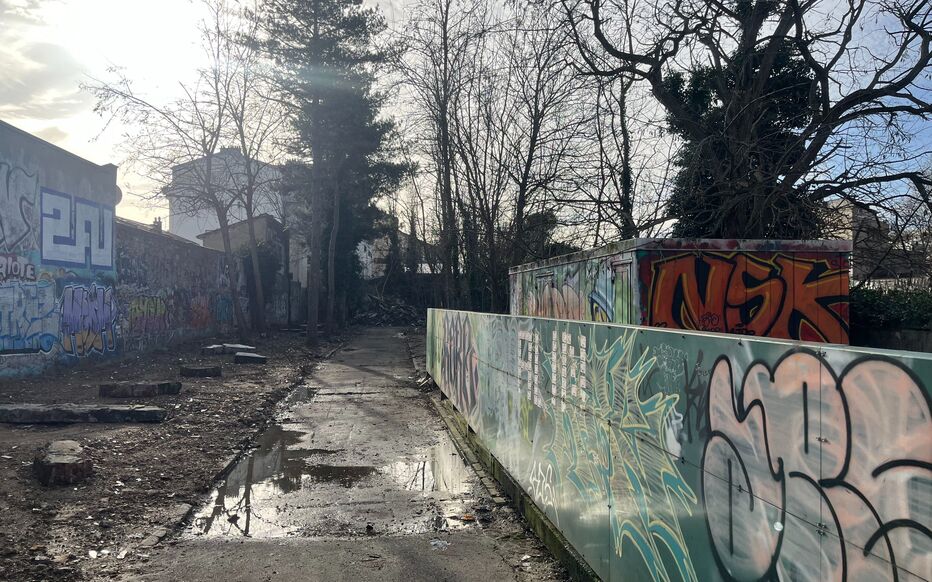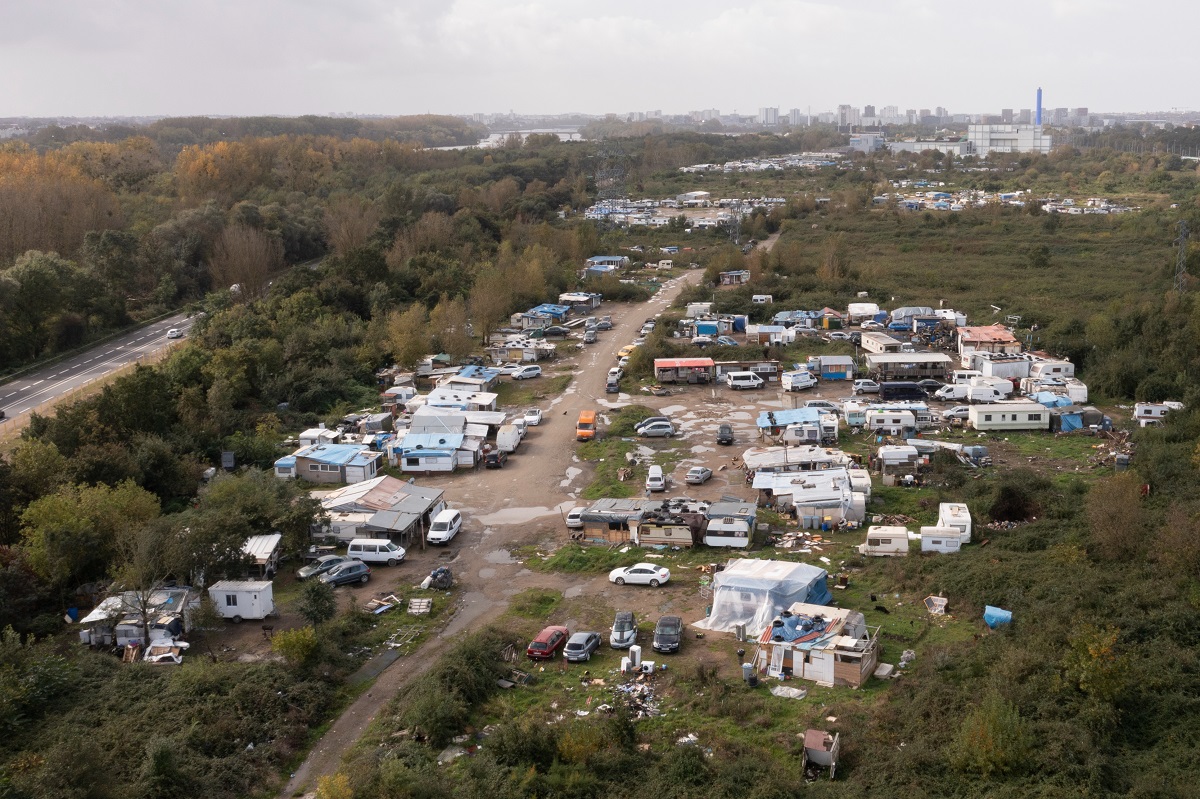Libération (2013) reports on the polemical statements of the Honorary President o the Front National, Jean-Marie Le Pen, father of the current President Marie Le Pen. Le Pen described France as a Wild West, which is conquered by westward migrating Rroma, a migration that will certainly increase from the beginning of 2014, when the new EU Persons Agreement enters into force. For Nice alone, he predicts an influx of 50,000 Rroma at least in 2014. With these statements, he trumped all forecasts and politicians who speak of a mass migration to obtain welfare in Western European countries. That migration is not only a result of economic circumstances, but may also have causes such as social disintegration, political hostility or lack of training opportunities and, that due to the local and family integration of the people, cannot be seen simply seen as a lump mass exodus. Politicians who argue by the logic of national methodologies, and to reduce people to economical and social factors, massively simplify the complexity of human interactions and motivations.
The forced evictions of informal Rroma camps continues. Dufresne (2013) reports on the official closure of one of the largest Rroma camps in Southern Lille, which is planned for mid-September 2013. On the grounds where the camp is located, a factory of the shoe company “Essensol” is being planed. As part of the evacuation plan, the surface of the camp is is gradually being curbed. Between 500 and 800 people live in the area. Desplos (2013) informs on the eviction of an occupied house in Bacalan in Bordeaux. Residents will be handed over to the French immigration authorities and returned to their home countries. To prevent the re-claiming of the granted return assistance, the deported people are being registered in a database with biometric data. The inhabitants of a neighbouring camp are luckier: They are enjoying social help to assist them in integrating into the labour market and in the search for their own accommodation.
Radio France Internationale (2013) addresses the broader, government evictions of slums and squats in France. As detailed in other articles, Radio France criticised the discrepancy between the statements of politicians on integration and the effective implementation of the plans. Thus, the circular letter of August, 2012, which asked for a better information residents of the camps and timely organization of alternative accommodation, is almost never applied. Pascale Quiviy of “Terre solitaire” criticised that the political will of several ministers to integrate Rroma better is being frustrated by the French Interior Minister. He appealed in this regard to greater conformity with the party programs that should be applied by elected representatives: “Pour le ministère de l’Intérieur, montrer sa fermeté est important, et il est populaire pour ça. Mais il y a un manque de courage de la part de la majorité pour mettre en vigueur des valeurs sur lesquelles pourtant la majorité a été élue. Des valeurs de solidarité, d’ouverture, de tolérance, donc une bonne politique courageuse serait de prendre ces sujets à bras le corps et agir.” [For the interior ministry, to show firmness is paramount and he is popular for that reason. But there is a lack of courage on the side of the majority to implement the values for which they were actually elected. Values of solidarity, openness, tolerance, so values that good and courageous policies should grab and act on.]
The politician Nicolas Dupont-Aignan and the Schauspierin Caroline Vigneaux argued in the show “Salut les Terriens!” on the question of the integration of Rroma in France. While Vigneaux took a social-democratic perspective of the protectionist, humanistic state, Dupont-Aignan took a generalising culturally justified negative position. He used the oftenheard, false analogy of a link between Rroma culture and the delinquency of members of this minority. He further criticized Romania’s inability to integrate Rroma successfully despite EU aid and called the Romanian state as being corrupt (Lambert 2013).
François (2013) emphasizes that around 5,000 Rroma of informal settlements or occupied houses were evicted in the second quarter of 2013. This represents about a quarter of the estimated 20,000 Rroma in France, although the reliability of this figure is highly doubtful. Other estimates go from 100,000 to 500,000 Rroma in France. However, these estimates are not only based on the so-called “visible” Rroma living in slums or occupied houses, but also the “invisible” ones, who live more or less well integrated in France. Demands for more efforts to integrate Rroma versus demands for massive deportations back to Romania and other countries of origin continues to divide the views.
Sources:
- Desplos, Jean-Michel (2013) Bordeaux: le squat de Roms se vide. In: Sud-Ouest online vom 4.7.2013.
- Dufrense, Arnaud (2013) Lille-Sud : le camp des familles roms de la rue de Marquillies sera évacué à la mi-septembre. In: La Voix du Nord online vom 4.7.2013.
- François, Jean-Baptiste (2013) Plus de 5 000 Roms évacués, en France, au deuxième trimestre 2013. In: La Croix online vom 4.7.2013.
- Lambert, Maxime (2013) Salut les Terriens : Nicolas Dupont-Aignan et les Roms. In: Gentside online vom 29.6.2013.
- Libération (2013) A Nice, Jean-Marie Le Pen dérape sur les Roms. In: Libération online vom 4.7.2013.
- Radio France International (2013) France: les évacuations de campements de Roms continuent sans relogement. In: Radio France International online vom 29.6.2013.
